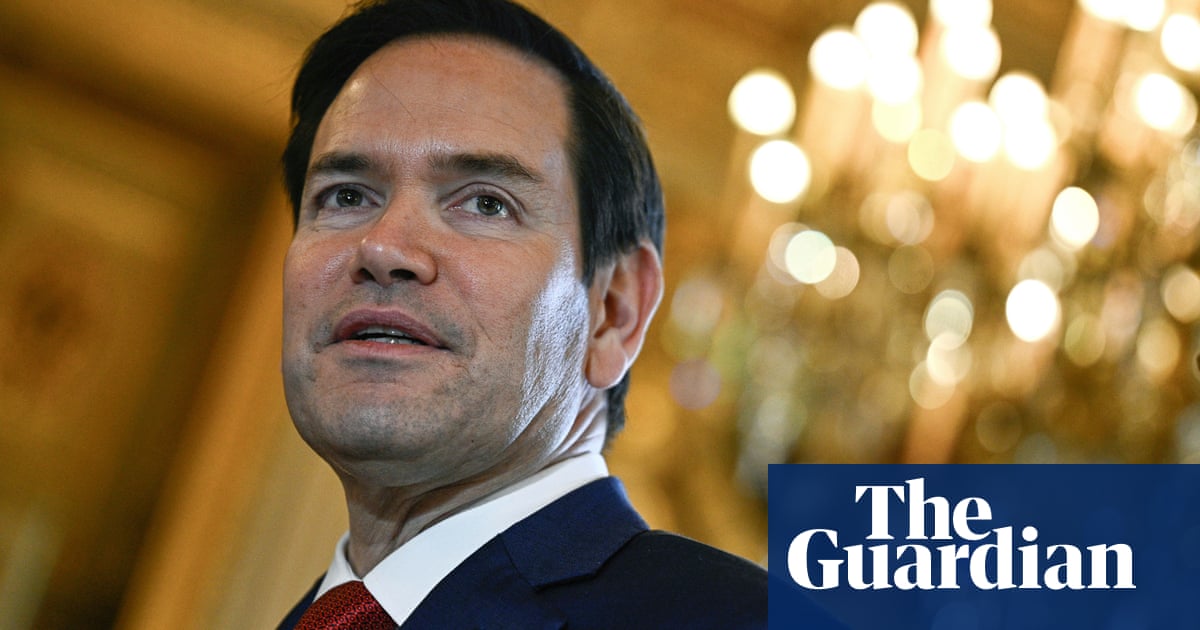The announcement from Secretary of State Marco Rubio regarding a comprehensive reorganisation of the US State Department signals a significant shift in US diplomatic strategy. This move appears to be a response to criticisms of the department's operations under previous administrations, particularly from the Trump White House. It raises questions about the potential implications for US foreign policy, the personnel involved, and broader geopolitical dynamics.
Objectives of the Announcement
Rubio aims to streamline the State Department's operations by consolidating regional functions and eliminating what he considers redundant offices. This reorganisation is framed as a necessary evolution to better align with America's national interests, suggesting a pivot away from promoting liberal values in favor of a more pragmatic, interest-driven approach to diplomacy. The intention seems to be to foster a more efficient and focused diplomatic apparatus, directly addressing the criticisms of being overly ideological.
Public Perception and Messaging
The framing of the reorganisation as a move to eliminate “radical political ideology” and enhance functionality is likely intended to resonate with segments of the public who feel that US foreign policy has strayed from its core interests. By presenting this restructuring as a return to foundational principles, the announcement may attempt to cultivate support from conservative and nationalist factions that prioritize national interests over international liberalism.
Potential Omissions or Hidden Agendas
While the announcement focuses on reform and efficiency, it may obscure underlying motivations, such as a potential shift towards more authoritarian regimes in foreign relations or the sidelining of human rights discussions. The emphasis on reducing staff and closing missions could also indicate budgetary constraints or a desire to reduce US presence in certain global regions, possibly leaving diplomatic voids.
Manipulative Elements and Trustworthiness
The language used in the announcement, particularly phrases like “sprawling bureaucracy” and “radical political ideology,” suggests an effort to frame the current state of the department as ineffective and overly politicized. This kind of rhetoric can be seen as manipulative, aiming to justify significant cuts and changes while rallying public support by appealing to fears about ideological extremism. The overall trustworthiness of the information hinges on its alignment with factual data regarding the State Department's performance and the potential consequences of the announced changes.
Comparative Context and Broader Implications
When compared to other recent announcements concerning US foreign policy, this reorganisation appears to align with a broader trend of prioritising national interests over global engagement. The implications could be far-reaching, impacting international relations, particularly with nations that have been beneficiaries of US diplomatic support based on liberal values.
Supportive Communities and Target Audience
This announcement is likely to garner support from conservative and populist groups within the US, who advocate for a more isolationist or nationalistic approach to foreign policy. The messaging is tailored to appeal to voters concerned about globalism and those who prioritize national sovereignty and economic interests.
Market and Economic Reactions
While the immediate effect on stock markets may be limited, sectors related to international trade, defense, and foreign aid could experience volatility as investors react to potential shifts in US foreign policy. Companies with significant international operations may need to reassess their strategies based on a potential reduction in US diplomatic presence.
Global Power Dynamics
This announcement could signal a shift in the US's approach to global power dynamics, possibly impacting relationships with allies and adversaries alike. It suggests a potentially more transactional and less principled stance in international relations, which may have ramifications for global stability and security.
Technological Influence in Reporting
There is potential that AI tools were employed in crafting the announcement or its dissemination, particularly in optimizing language for public engagement. However, the extent of such influence is speculative without direct evidence. The use of AI could shape the narrative by emphasizing specific themes that align with the administration's broader goals.
In summary, while the announcement regarding the State Department's reorganisation reflects a strategic pivot in US foreign policy, its implications for diplomacy, public perception, and international relations warrant careful scrutiny. The framing and rhetoric employed indicate a desire to manipulate public opinion in favor of significant structural changes.
